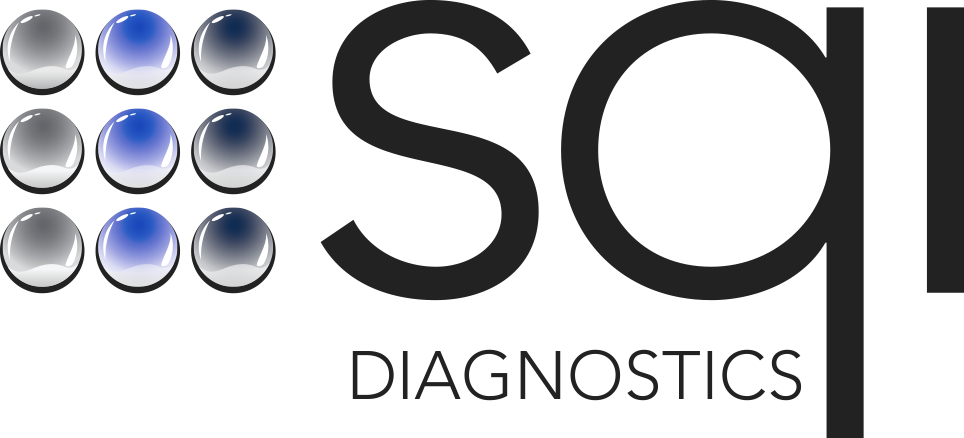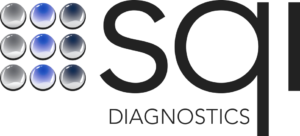Toronto, OntarioFebruary 4, 2019SQI Diagnostics Inc. (“SQI Diagnostics” or the “Company”) (TSX-V: SQD; OTCQB: SQIDF),
today announced two research and development agreements with University Health Network (UHN) to create and license rapid multiplexed protein assays and a point-of-care (POC) diagnostic device that will help transplant surgeons assess the suitability of lungs and other organs for transplantation.
- A multiplexed test could aid in doctors assessment of suitability of donor lungs for transplant
- Collaboration with Dr. Shaf Keshavjee at UHN’s Toronto Lung Transplant Program, the largest lung transplant program in the world
SQI is a Toronto-based life sciences and diagnostics company that develops and commercializes proprietary technologies and products for advanced multiplexed diagnostics.
SQI scientists will work with Dr. Shaf Keshavjee who heads the world-renowned Toronto Lung Transplant Program at UHN and the University of Toronto. Dr. Keshavjee is a pioneer in improving the health of donor organs so that they can be transplanted to critically ill patients with end-stage lung disease, including: Pulmonary Fibrosis, Cystic Fibrosis, Pulmonary Hypertension & Chronic Obstructive Pulmonary Disease (COPD). This past year, only about 6,000 lung transplants were performed globally due to the shortage of donor organs. Compared to other solid organ transplants, donor lungs have one of the lowest utilization rates at about 20%. As a result, one in five patients waiting for a lung transplant will die before that transplant occurs. The need for suitable donor lungs is massive.
A significant challenge exists to assess the quality and health of a donor lung and the suitability for transplantation. Today, the decision on whether a donor lung is “good” rests on largely an assessment by the surgeon based mostly on qualitative clinical factors available during the organ donation process.
However, even with new lung assessment and preservation techniques, such as the Toronto Ex Vivo Lung Perfusion technology (EVLP) developed at UHN, there may be underlying injury to the donor lung that is not apparent to the surgeon at the time of transplant, which could contribute to less than optimum patient outcomes.
SQI will work with UHN to create a rapid multi-plex test and POC device that leverages predictive biomarkers developed at UHN to more accurately and quantitatively assess the suitability of a lung for transplant. This will bring precision medicine to the bedside in transplantation, providing unprecedented data to surgeons that will better inform the decision to transplant and ultimately improve post-transplant outcomes for the patient.
For SQI, the market for a high-quality POC testing device for transplants is large and growing. This research partnership aims to expand the applicability of the device to other organs beyond lung.
“Integrating rapid diagnostics is a major step forward in lung transplantation. By providing transplant teams with quantitative metrics to more accurately assess donor lungs, we are moving decision making in transplantation into the era of personalized medicine,” said Dr. Keshavjee. “We are pleased to work with SQI, another Canadian pioneer, in advancing health care through leading edge diagnostic advances.”
Andrew Morris, CEO of SQI Diagnostics stated: “This agreement represents a reputational landmark for SQI, given the pioneering and global leadership role of Toronto and UHN in the growing field of lung transplantation. It also represents a major long-term commercialization opportunity. SQI’s multi-array testing is proving to be applicable in areas well beyond drug development and disease identification.”
Investor relations contact:
Chief Executive Officer
Andrew Morris
416.674.9500 ext. 229
amorris@sqidiagnostics.com
Vice President of Finance
Patricia Lie
416.674.9500 ext. 277
plie@sqidiagnostics.com
About SQI Diagnostics
SQI Diagnostics is a life sciences and diagnostics company that develops clinical grade multiplexed microarray and molecular assays run on its automated instrumentation for the pharmaceutical research, animal health, and clinical diagnostics markets. SQI develops custom research and diagnostic assays that are multiplexed; meaning the simplification, consolidation and automation of many individual tests into one. This increases sample throughput, reduces time, cost and chance for human error, and provides excellent data quality. For more information, please visit sqidiagnostics.com.
About University Health Network
University Health Network consists of Toronto General and Toronto Western Hospitals, the Princess Margaret Cancer Centre, Toronto Rehabilitation Institute, and The Michener Institute of Education at UHN. The scope of research and complexity of cases at University Health Network has made it a national and international source for discovery, education and patient care. It has the largest hospital-based research program in Canada, with major research in cardiology, transplantation, neurosciences, oncology, surgical innovation, infectious diseases, genomic medicine and rehabilitation medicine. University Health Network is a research hospital affiliated with the University of Toronto.
Forward-looking Statements
This press release contains certain statements including, without limitation, the words “may”, “plan”, “will”, “estimate”, “continue”, “anticipate”, “intend”, “expect”, “believe”, “in the process”, “benefits”, “leading to”, “position” “possible”, “is subject to” and other similar expressions which may constitute “forward-looking statements” within the meaning of applicable securities laws. Forward-looking statements reflect the Company’s current expectations and assumptions, and are subject to a number of risks and uncertainties that could cause actual results to differ materially from those anticipated. Readers are cautioned not to place undue reliance on these forward-looking statements. These forward-looking statements involve risks and uncertainties including, but not limited to: our ability to market and sell our products including our novel multiplexing technologies and detection platforms; our ability to maintain any technical or product advantages; the success of our Diagnostic Tools and Services business and our intent to build near-term revenue streams from this business; the successful regulatory filing and receipt of regulatory approvals for our later stage quantitative diagnostic consumable kits; adverse changes in general economic conditions; international risk and currency exchange fluctuations; competitor activity; technology changes; regulatory approvals and the impact of healthcare reform legislation; and, SQI’s ability to raise additional funds in the future.
Such statements, risks and uncertainties are detailed in the Company’s ongoing filings with the securities regulatory authorities, and are available to the public at www.sedar.com. The Company undertakes no obligation to publicly update or revise any forward-looking statements either as a result of new information, future events or otherwise, except as required by applicable securities laws.
Neither TSX Venture Exchange nor its Regulation Services Provider (as that term is defined in the policies of the TSX Venture Exchange) accepts responsibility for the adequacy or accuracy of this release.

